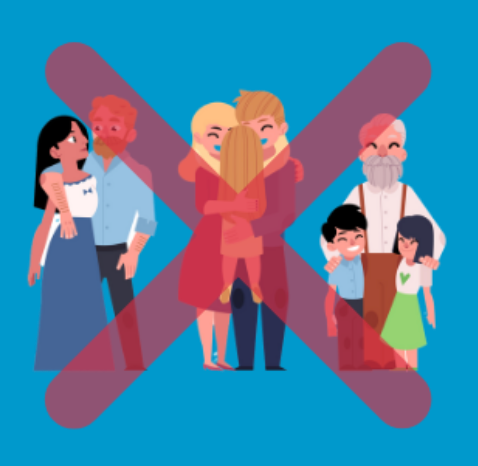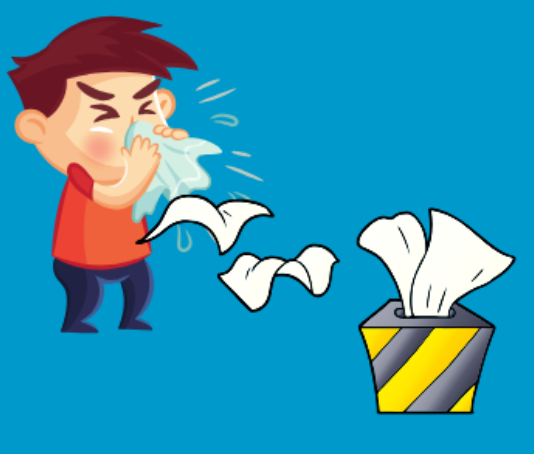 |
| Man Washing Hands |
With hundreds of thousands of people infected around the world, the novel Coronavirus (COVID-19) pandemic is threatening the globe. Here is some basic information on what COVID-19 is and how we can protect ourselves.
This information is based on World Health Organization (WHO) advice, available on the WHO website.
What is COVID-19?
The novel Coronavirus (COVID-19) was discovered in 2019 and is linked to the same family of viruses as Severe Acute Respiratory Syndrome (SARS) and some types of common cold.
What are the symptoms?
Respiratory symptoms such as fever, cough, shortness of breath and breathing difficulties are common signs of the infection. Since the symptoms are similar to those of the flu (influenza) or the common cold, testing is a must to confirm if someone has COVID-19. The infection can cause pneumonia, severe acute respiratory syndrome, kidney failure and even death in more severe cases.
How does the COVID-19 virus spread?
The infection is transmitted through direct contact with respiratory droplets (through coughing and sneezing) from an infected person and touching surfaces contaminated with the virus. The virus may survive on surfaces for several hours, but simple disinfectants can kill it.
How can you prevent infection and stay safe?
1.Wash your hands frequently
Why: The above mentioned products kill viruses that may be on your hands.How: Soap and water or an alcohol-based hand rub for at least 20 seconds.
2. Maintain social distancing

How: Keep at least one metre (three feet) between yourself and anyone who has cold or flu-like symptoms.
Why: This will prevent you from breathing in small liquid droplets, spread through coughs or sneezes, which may contain the COVID-19 virus.
3. Avoid touching your face and practise respiratory hygiene

How: Do NOT touch your eyes, nose and mouth. Cover your mouth and nose with your bent elbow or a single-use tissue when you cough or sneeze.
Why: The virus can enter your body through your eyes, nose or mouth. Good respiratory hygiene can protect you and the people around you from viruses.
4. Seek medical care

How: Call your doctor or health authority early if you or your family have a fever, cough and difficulty breathing. Follow the directions of your local health authority.
Why: Calling in advance will protect you and help prevent spread of viruses and other infections. Your health care provider can direct you to the right health facility.
When and how to use a mask?
If you don’t have any symptoms, and unless you’re taking care of a person who is suspected to have contracted the COVID-19 infection, you don’t need to wear a mask. If you are coughing and sneezing, wear a mask to protect others.
Do not forget that masks alone are not enough to stop infections. Their use must be combined with frequent hand-cleaning, covering sneezes and coughs, and keeping at least one metre from others. To ensure masks are effective in avoiding any increased risk of transmitting the virus, they must be used and disposed of properly.
What to believe?
Does cold weather kill COVID-19? Can hot baths or eating garlic prevent you from contracting the virus? Can it be transmitted through mosquito bites?
Only believe information from reliable, official sources, and read the WHO myths-buster to stay away from misleading and potentially harmful information.
What precautions should you take if you travel?
If you have to travel abroad, do not forget to check the travel advisory for the destination country. Checking the latest situation in the destination country may protect you from being quarantined, or denied entry or re-entry into your home country. The World Food Programme (WFP) Emergency Division regularly updates an online map showing travel restrictions around the world. Also, the International Air Transport Association (IATA) offers the latest COVID-19 update and restriction measures on its website.
During your travel, standard hygiene measures — washing hands frequently, using an alcohol-based sanitizer, covering mouth and nose with your elbow or a tissue when sneezing and coughing, and keeping one metre from others — must be followed. Carrying a hand sanitizer, disposable tissues and disinfecting wipes is strongly recommended. They should be also used to clean your seat, touchscreen, key surfaces, doorknobs etc.
What is WFP doing?
To minimize the impact of the epidemic on the 86 million people it intends to serve this year, WFP is adapting its planning to ensure they will continue receiving the assistance they need.
With its long-standing experience and vast expertise in emergency response, logistics and supply chain, emergency telecommunications, nutrition and other key areas, WFP stands ready to help through this unprecedented crisis.


















Post A Comment: